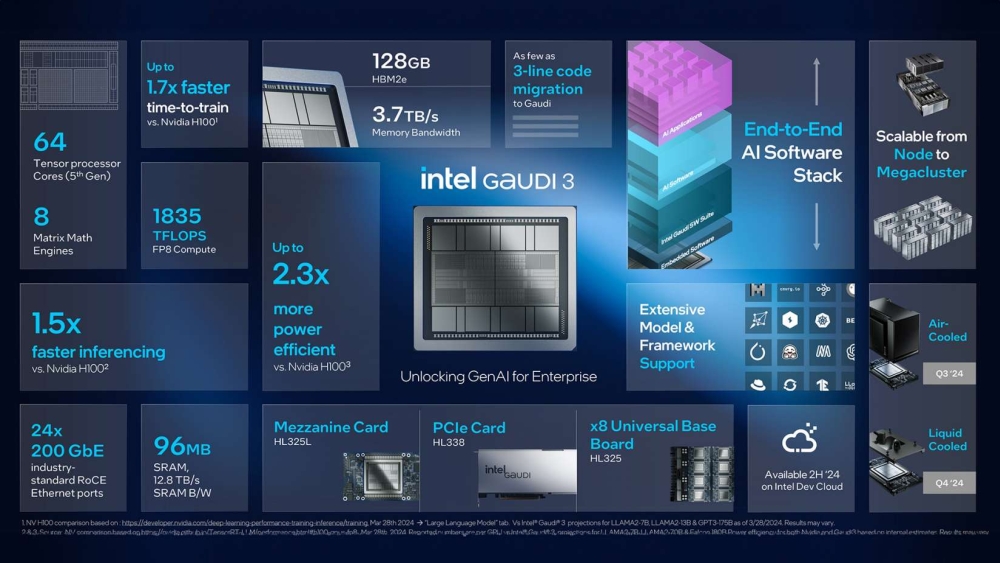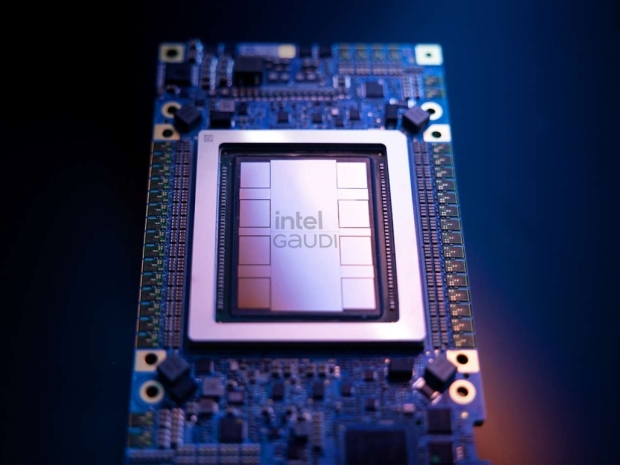Gaudi 3 comes in all shapes and sizes, from a gang of eight on a single motherboard to a nifty card that'll slip into your existing setup. Intel's been putting it through its paces with Meta's Llama and the Falcon model, backed by Abu Dhabi's big bucks. They reckon it's the bee's knees for training or deploying the likes of Stable Diffusion and OpenAI's Whisper.
Nvidia may have a firm grip on the AI chip market with its estimated 80 per cent share, but Intel is far from complacent. It is gearing up to release the Gaudi 3 in the third quarter, with industry heavyweights like Dell, Hewlett Packard Enterprise, and Supermicro eagerly awaiting their turn. While the price remains a mystery, Intel is confident that the Gaudi 3 will give Nvidia a run for its money.
Intel's Xeon software VP, Das Kamhout, has been discussing that competitive edge and boasting Chipzilla’s open integrated network on chip and industry-standard Ethernet. It's not just about the chips, though. The whole data centre AI market's set to balloon, and everyone's looking for a piece of the pie.
Let's not forget AMD, either. It is elbowing its way into the server scene with its MI300X GPU, already cosying up with Meta and Microsoft. Nvidia has its B100 and B200 GPUs waiting in the wings, ready to ship later this year.
Nvidia's success can be attributed to its exclusive software suite, CUDA, which empowers AI researchers to fully use GPU hardware capabilities. In contrast, Intel is collaborating with tech behemoths like Google, Qualcomm, and Arm to develop non-proprietary open software. This initiative aims to give software firms the flexibility to switch between chip suppliers easily.
Sachin Katti, Intel's senior vice president of the networking group, explained, "Our goal is to foster an ecosystem of software that provides open reference designs and fundamental components. This approach enables the creation of tailored solutions, liberating companies from the constraints of pre-packaged options."Gaudi 3 is built on a five-nanometer process, a relatively recent manufacturing technique, suggesting that the company is using an outside foundry for manufacturing the chips. In addition to designing Gaudi 3, Intel plans to manufacture AI chips, potentially for outside companies, at a new Ohio factory expected to open in 2027 or 2028, CEO Patrick Gelsinger told reporters last month.
When this factory comes online, Gaudi 3 could be the chip that launches a thousand servers. It does look like we are headed towards a new Chip war.


